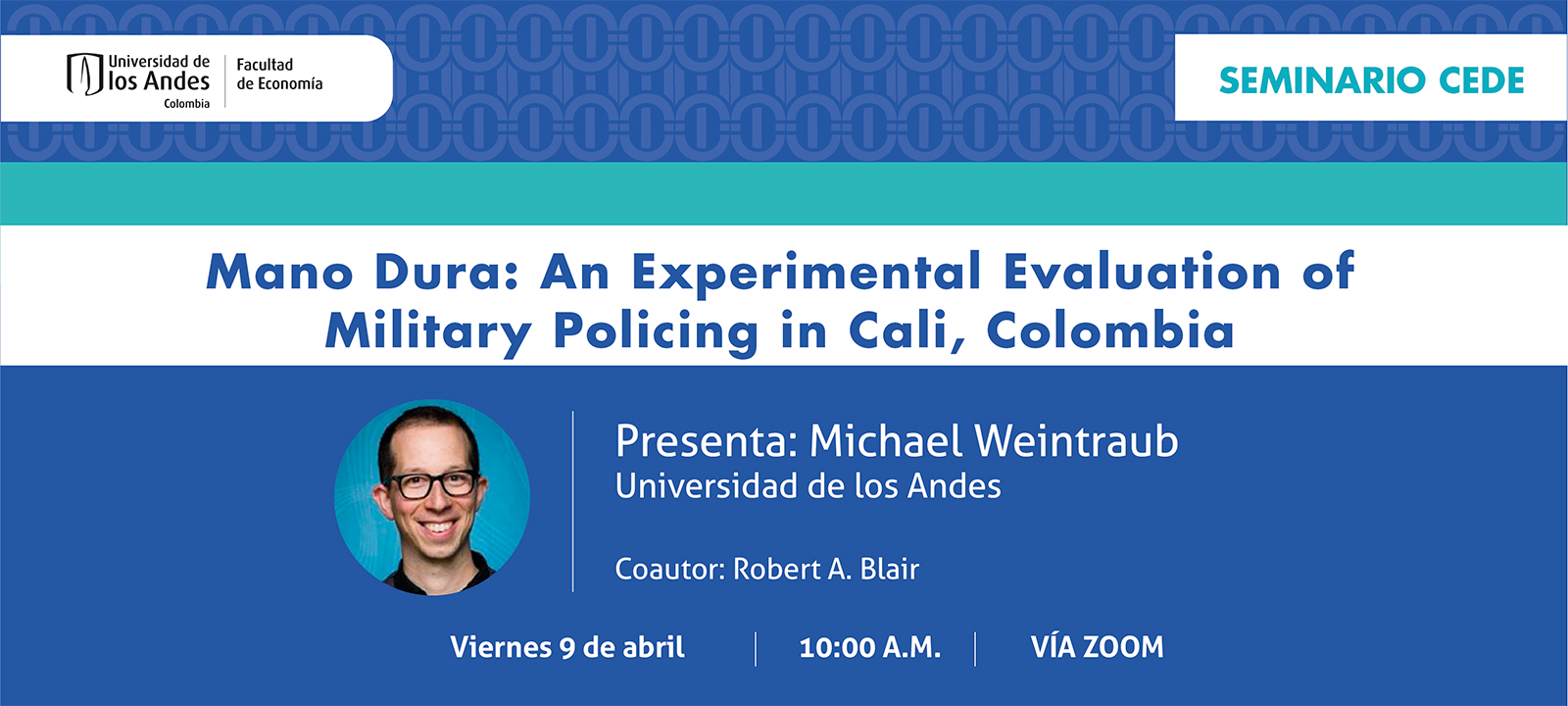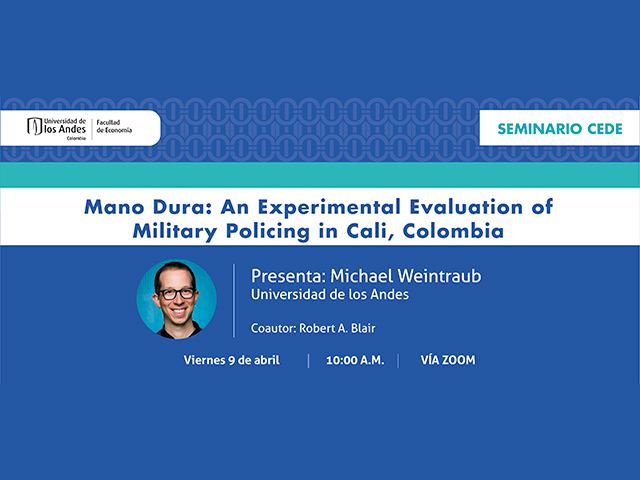Seminario CEDE - Michael Weintraub

Governments across the developing world rely on their armed forces for domestic policing operations. Advocates of these “mano dura” (iron fist) policies view them as necessary to control crime, while detractors claim they undermine human rights. We experimentally evaluate a military policing intervention in Cali, Colombia, the country’s third largest city and among its most violent. The intervention involved recurring, intensive military patrols targeting crime hot spots, randomly assigned at the city block level. Using administrative crime and human rights data, surveys, a conjoint survey experiment, a costly behavioral measure, qualitative interviews, and firsthand observations from civilian monitors, we find some suggestive evidence that military policing reduces crime, but only on days and times when soldiers are physically present on the streets. Despite these temporally circumscribed effects, we find strong evidence of increased demand for more aggressive military involvement in policing and other aspects of governance, including increased support for military coups. We also find some suggestive evidence of increased human rights abuses committed by police officers in particular.
Finally, we observe a large, significant, and lasting increase in citizens’ reports of witnessing crime, and a correspondingly large, significant, and lasting increase in their willingness to report crimes to the authorities. We interpret this as evidence of increased vigilance by citizens and increased co-production of security not just between the military and the police, but between civilians and the authorities as well.

